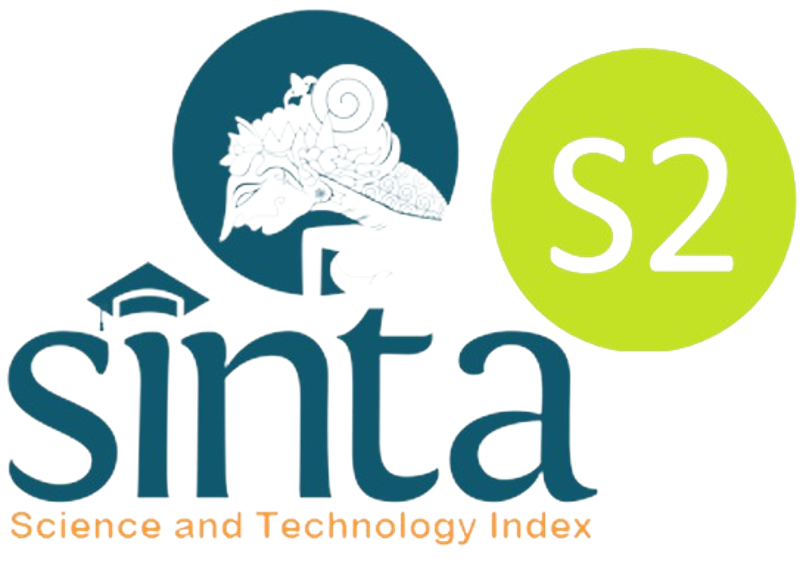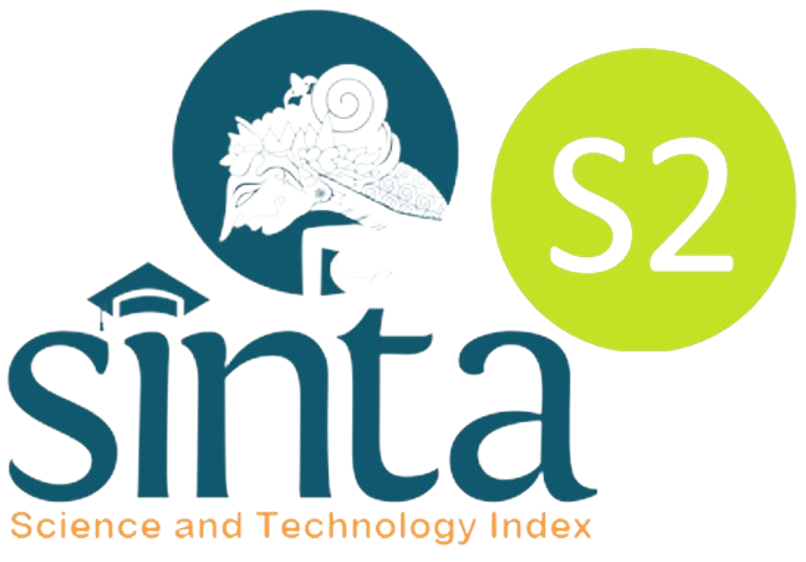THE EFFECTIVENESS OF PROBLEM-BASED LEARNING (PBL) MODELS BASED ON SOCIO-SCIENTIFIC ISSUES (SSI) TO IMPROVE THE ABILITY OF SCIENCE LITERACY ON CLIMATE CHANGE MATERIALS
DOI:
https://doi.org/10.26740/jpps.v7n2.p1519-1524Keywords:
science literacy, problem based learning model, socio-scientific issuesAbstract
This study aimed to determine the effectiveness of Problem-Based Learning (PBL) model based on Socio-scientific Issues (SSI) to improve the ability of science literacy on climate change materials. This type of research is a 4-D model development with research design using One Group pretest-posttest design. Subjects in this study are learning devices IPA with PBS model based on SSI which is tested in this II test phase in grade VII students at SMP Negeri 1 Bangsal Mojokerto as many as 3 classes. The technique of data analysis for the result of science literacy test in learning is data of pre-test result and post-test of student that function to know improvement of science literacy of student before and after learning. This increase is known through N-Gain analysis. Based on the results of the research, it can be concluded that the learning tools of IPA with Problem Based Learning (PBL) model based on Socio-scientific Issues (SSI) to improve scientific literacy ability on climate change material developed has been effective so it is feasible to be used in learningDownloads
Download data is not yet available.
References
DeBoer, G.E. (2000). Scientific literacy: Another look at its historical and contemporary meanings and its relationship to science education reform. Journal of Research in Science Teaching, 37(6), 582-601.
Erika, F., Prahani, B.K., Supardi, Z.A.I., and Tukiran. (2018). The development of metacognition-based learning media for the industrial electronics field in a vocational high school. World Trans. on Engineering and Technology Education, 16(2), 179-185.
Gutierez, S.B. (2015). Integrating socio-scientific issues to enhance the bioethical decision-making skills of high shool students. International Education Studies, 8(1),1913-9020.
Inzanah. (2014). Pengembangan Perangkat Pembelajaran IPA Berbasis Kurikulum 2013 Untuk Melatihkan Literasi Sains Siswa SMP. Jurnal Penelitian Pendidikan Sains, 4(1).
Jatmiko, B., Prahani, B.K., Munasir, Supardi, Z.A.I., Wicaksono, I., Erlina, N., Pandiangan, P., Althaf, R., and Zainuddin. (2018). The comparison of OR-IPA teaching model and problem based learning model effectiveness to improve critical thinking skills of pre-service physics teachers. Journal of Baltic Science Education, 17(2), 1-22.
Limatahu I., Suyatno, Wasis, and Prahani, B.K. (2018). The effectiveness of CCDSR learning model to improve skills of creating lesson plan and worksheet science process skills (SPS) for pre-service physics teacher. Journal Physics: Conference Series, 997(1), 012032.
Madeali, H. and Prahani, B.K. (2018). Development of multimedia learning based inquiry on vibration and wave material. Journal Physics: Conference Series, 997(1), 012029.
Nuangchalerm, Prasart, and Kwuanthong, B. (2010). Teaching œglobal warming through socioscientific issues-based instruction. Journal of Asian Social Science, 6 (8), 42-47.
OECD. (2014). PISA 2012 Results in Focus. Programme for International Student Assessment, 144.
OECD. (2016). PISA 2015 assesment and analytical framework: science, reading, mathematic and financial literacy. http://doi.org/10.1787/9789264255425-en
Prahani, B.K., Limatahu, I., Winata, S.W., Yuanita, L., and Nur, M. (2016). Effectiveness of physics learning material through guided inquiry model to improve students problem solving skills based on multiple representation. International Journal of Education and Research, 4(12), 231-244.
Prahani, B.K., Nur, M., Yuanita, L., and Limatahu, I. (2016). Validitas model pembelajaran group science learning: Pembelajaran inovatif di Indonesia. Vidhya Karya, 31(1), 72-80.
Prahani, B.K., Soegimin, W.W., and Yuanita, L. (2015). Pengembangan perangkat pembelajaran fisika model inkuiri terbimbing untuk melatihkan keterampilan penyelesaian masalah berbasis multi representasi siswa SMA. Jurnal Penelitian Pendidikan Sains, 4(2), 503-517.
Prahani, B.K., Suprapto, N., Suliyanah, Lestari, N.A., Jauhariyah, M.N.R, Admoko, S., and Wahyuni, S. (2018). The effectiveness of collaborative problem based physics learning (CPBPL) model to improve students self-confidence on physics learning. Journal Physics: Conference Series, 997(1), 012008.
Purwaningsih, E., Suyatno, Wasis, and Prahani, B.K. (2018). The effectiveness of comcorels model to improve skills of creating physics lesson plan (CPLP) for pre-service physics teacher. Journal Physics: Conference Series, 997(1), 012022.
Rahayu, S. (2014). Menuju masyarakat berliterasi sains: Harapan dan tantangan kurikulum 2013. Makalah disajikan dalam Seminar Nasional Kimia dan Pembelajarannya (SNKP) 2014, Jurusan Kimia FMIPA Universitas Negeri Malang.
Ratumanan, T.G. (2015). Belajar dan pembelajaran, serta faktor-faktor yang mempengaruhinya. Yogyakarta: Unesa University Press.
Savin-Baden. (2014). Using problem-based learning: New constellations for the 21st century. Journal on Excelllence in College Teaching, 25(3), 197-219.
Sudiarman, Soegimin, W.W., and Susantini, E. (2015). Pengembangan perangkat pembelajaran fisika berbasis inkuiri terbimbing untuk melatihkan keterampilan proses sains dan meningkatkan hasil belajar pada topik suhu dan perubahannya. Jurnal Penelitian Pendidikan Sains, 4(2), 636-647.
Sunarti T., Wasis, Madlazim, Suyidno, and Prahani, B.K. (2018). The effectiveness of CPI model to improve positive attitude toward science (PATS) for pre-service physics teacher. Journal Physics: Conference Series, 997(1), 012013.
Suyidno, Nur, M., Yuanita, L., and Prahani, B.K. (2017). Validity of creative responsibility based learning: An innovative physics learning to prepare the generation of creative and responsibility. Journal of Research & Method in Education, 7(1), 56-61.
Suyidno, Nur, M., Yuanita, L., Prahani, B.K., and Jatmiko, B. (2018). Effectiveness of creative responsibility based teaching (CRBT) model on basic physics learning to increase students scientific creativity and responsibility. Journal of Baltic Science Education, 17(1), 136-151.
Thiagarajan, S., Semmel, D., S and Semmel, M., I. 1974. Instructional Development for Training Teachers of Expectional Children. Minneapolis, Minnesota: Leadership Training Institute/Special Education, University of Minnesota.
Yasir, M., Ibrahim, M., and Widodo, W. (2016). Pengembangan perangkat pembelajaran biologi berbasis metakognitif untuk melatihkan kejujuran siswa. Jurnal Penelitian Pendidikan Sains, 5(2), 1109-1015.
Zeidler, D.L. (2005). Beyond STS: A Research-Based Framework for Socioscientific Issues Education. Journal of Science Education, 89(3), 357-377.
Erika, F., Prahani, B.K., Supardi, Z.A.I., and Tukiran. (2018). The development of metacognition-based learning media for the industrial electronics field in a vocational high school. World Trans. on Engineering and Technology Education, 16(2), 179-185.
Gutierez, S.B. (2015). Integrating socio-scientific issues to enhance the bioethical decision-making skills of high shool students. International Education Studies, 8(1),1913-9020.
Inzanah. (2014). Pengembangan Perangkat Pembelajaran IPA Berbasis Kurikulum 2013 Untuk Melatihkan Literasi Sains Siswa SMP. Jurnal Penelitian Pendidikan Sains, 4(1).
Jatmiko, B., Prahani, B.K., Munasir, Supardi, Z.A.I., Wicaksono, I., Erlina, N., Pandiangan, P., Althaf, R., and Zainuddin. (2018). The comparison of OR-IPA teaching model and problem based learning model effectiveness to improve critical thinking skills of pre-service physics teachers. Journal of Baltic Science Education, 17(2), 1-22.
Limatahu I., Suyatno, Wasis, and Prahani, B.K. (2018). The effectiveness of CCDSR learning model to improve skills of creating lesson plan and worksheet science process skills (SPS) for pre-service physics teacher. Journal Physics: Conference Series, 997(1), 012032.
Madeali, H. and Prahani, B.K. (2018). Development of multimedia learning based inquiry on vibration and wave material. Journal Physics: Conference Series, 997(1), 012029.
Nuangchalerm, Prasart, and Kwuanthong, B. (2010). Teaching œglobal warming through socioscientific issues-based instruction. Journal of Asian Social Science, 6 (8), 42-47.
OECD. (2014). PISA 2012 Results in Focus. Programme for International Student Assessment, 144.
OECD. (2016). PISA 2015 assesment and analytical framework: science, reading, mathematic and financial literacy. http://doi.org/10.1787/9789264255425-en
Prahani, B.K., Limatahu, I., Winata, S.W., Yuanita, L., and Nur, M. (2016). Effectiveness of physics learning material through guided inquiry model to improve students problem solving skills based on multiple representation. International Journal of Education and Research, 4(12), 231-244.
Prahani, B.K., Nur, M., Yuanita, L., and Limatahu, I. (2016). Validitas model pembelajaran group science learning: Pembelajaran inovatif di Indonesia. Vidhya Karya, 31(1), 72-80.
Prahani, B.K., Soegimin, W.W., and Yuanita, L. (2015). Pengembangan perangkat pembelajaran fisika model inkuiri terbimbing untuk melatihkan keterampilan penyelesaian masalah berbasis multi representasi siswa SMA. Jurnal Penelitian Pendidikan Sains, 4(2), 503-517.
Prahani, B.K., Suprapto, N., Suliyanah, Lestari, N.A., Jauhariyah, M.N.R, Admoko, S., and Wahyuni, S. (2018). The effectiveness of collaborative problem based physics learning (CPBPL) model to improve students self-confidence on physics learning. Journal Physics: Conference Series, 997(1), 012008.
Purwaningsih, E., Suyatno, Wasis, and Prahani, B.K. (2018). The effectiveness of comcorels model to improve skills of creating physics lesson plan (CPLP) for pre-service physics teacher. Journal Physics: Conference Series, 997(1), 012022.
Rahayu, S. (2014). Menuju masyarakat berliterasi sains: Harapan dan tantangan kurikulum 2013. Makalah disajikan dalam Seminar Nasional Kimia dan Pembelajarannya (SNKP) 2014, Jurusan Kimia FMIPA Universitas Negeri Malang.
Ratumanan, T.G. (2015). Belajar dan pembelajaran, serta faktor-faktor yang mempengaruhinya. Yogyakarta: Unesa University Press.
Savin-Baden. (2014). Using problem-based learning: New constellations for the 21st century. Journal on Excelllence in College Teaching, 25(3), 197-219.
Sudiarman, Soegimin, W.W., and Susantini, E. (2015). Pengembangan perangkat pembelajaran fisika berbasis inkuiri terbimbing untuk melatihkan keterampilan proses sains dan meningkatkan hasil belajar pada topik suhu dan perubahannya. Jurnal Penelitian Pendidikan Sains, 4(2), 636-647.
Sunarti T., Wasis, Madlazim, Suyidno, and Prahani, B.K. (2018). The effectiveness of CPI model to improve positive attitude toward science (PATS) for pre-service physics teacher. Journal Physics: Conference Series, 997(1), 012013.
Suyidno, Nur, M., Yuanita, L., and Prahani, B.K. (2017). Validity of creative responsibility based learning: An innovative physics learning to prepare the generation of creative and responsibility. Journal of Research & Method in Education, 7(1), 56-61.
Suyidno, Nur, M., Yuanita, L., Prahani, B.K., and Jatmiko, B. (2018). Effectiveness of creative responsibility based teaching (CRBT) model on basic physics learning to increase students scientific creativity and responsibility. Journal of Baltic Science Education, 17(1), 136-151.
Thiagarajan, S., Semmel, D., S and Semmel, M., I. 1974. Instructional Development for Training Teachers of Expectional Children. Minneapolis, Minnesota: Leadership Training Institute/Special Education, University of Minnesota.
Yasir, M., Ibrahim, M., and Widodo, W. (2016). Pengembangan perangkat pembelajaran biologi berbasis metakognitif untuk melatihkan kejujuran siswa. Jurnal Penelitian Pendidikan Sains, 5(2), 1109-1015.
Zeidler, D.L. (2005). Beyond STS: A Research-Based Framework for Socioscientific Issues Education. Journal of Science Education, 89(3), 357-377.
Downloads
Published
2018-06-26
How to Cite
Putri, P. D., Tukiran, T., & Nasrudin, H. (2018). THE EFFECTIVENESS OF PROBLEM-BASED LEARNING (PBL) MODELS BASED ON SOCIO-SCIENTIFIC ISSUES (SSI) TO IMPROVE THE ABILITY OF SCIENCE LITERACY ON CLIMATE CHANGE MATERIALS. JPPS (Jurnal Penelitian Pendidikan Sains), 7(2), 1519–1524. https://doi.org/10.26740/jpps.v7n2.p1519-1524
Issue
Section
Implementation of Digital Technology in Science Education
 Abstract views: 1814
,
Abstract views: 1814
, PDF Downloads: 1075
PDF Downloads: 1075












